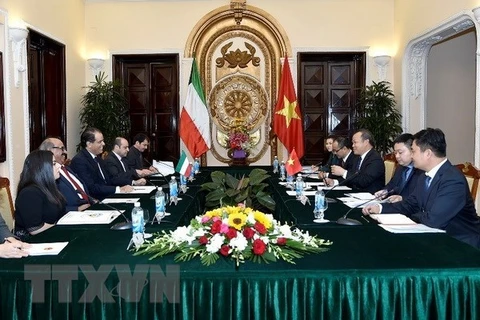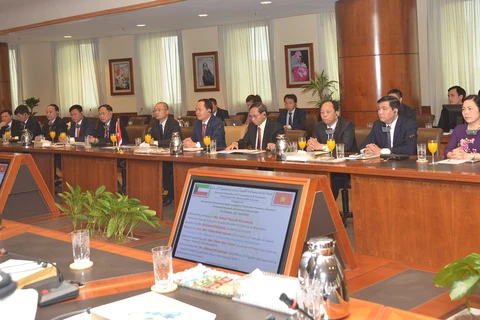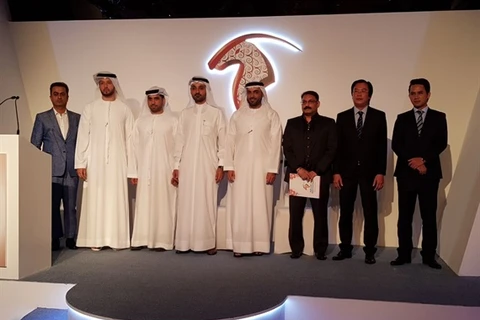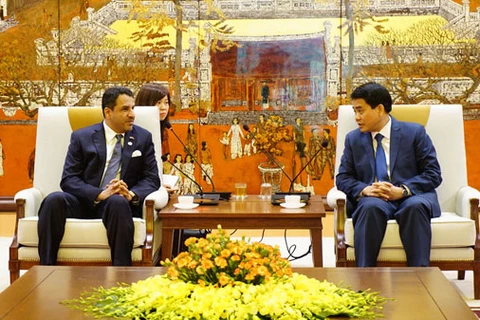HCM City (VNA) – Kuwait and the United Arab Emirates (UAE) are two potential markets in the Middle East which Vietnamese enterprises could begin intensifying their exports to, heard a workshop held in Ho Chi Minh City on September 25.
The workshop was jointly organised by the city’s Investment & Trade Promotion Centre (ITPC) and the Kuwaiti Consulate General in the city.
Pham Thiet Hoa, ITPC Director, said that the UAE and Kuwait belong to the six-strong Gulf Cooperation Council (GCC), which has been assessed as holding much potential for cooperation in trade and investment with Vietnam.
The UAE is the second biggest economy in the Middle East, playing a pivotal role as a commercial and financial centre in the region, and the world’s third largest re-export centre.
The UAE’s import turnover reached 265 billion USD in 2017. However, Vietnam’s exports to the country were valued at just over 5 billion USD, accounting for only just under 2 percent of the market share, Hoa said.
He suggested Vietnamese enterprises step up their exports of seafood, pepper, cashew nuts, coffee, vegetables, fruit, garment and textiles, footwear, and construction materials to the Middle Eastern nation.
Kuwait is a wealthy country in the Middle East which imports almost all kinds of goods, noted Hoa. Its import turnover hits around 30 billion USD each year, of which Vietnam’s exports are worth 70-75 million USD, or 0.25 percent of the total.
Therefore, there remains huge potential for Vietnamese businesses to export goods to this market, he added.
Jasem Abomarzouq, Kuwaiti Deputy Consul General, said that trade ties between Kuwait and Vietnam are developing strongly.
With bilateral trade at 350 million USD in 2017, the figure enjoyed a four-fold rise to 1.43 billion USD in the first eight months of 2018. Of the total, only 54 million USD came from Vietnamese exports.
He said that due to unfavourable conditions in land and labour force, Kuwait and other GCC nations – namely the UAE, Saudi Arabia, Quatar, Bahrain, and Oman – have a huge demand for imported food, food stuffs, seafood, construction materials, machinery, automobiles, and garments and textiles.
This is a big chance for Vietnamese enterprises, especially those exporting agricultural products and seafood, he affirmed.
However, he stressed the need for enterprises to pay attention to ensure their products meet Muslim-specific requirements.
Nguyen Thi Ngoc Hang, a representative from the Halal Certification Agency in Vietnam, stated that Halal certification is the most simple and trustworthy way to prove that the origin of materials is suitable to Muslim consumers.
With the certification, Vietnamese products will have more chance to compete with other products in the Middle East and the world at large, she said.
At the event, enterprises with experience in exporting products to the Middle Eastern market also advised that when accessing these markets, businesses should be selective in assigning male workers to liaise with partners from the region. –VNA
VNA
























